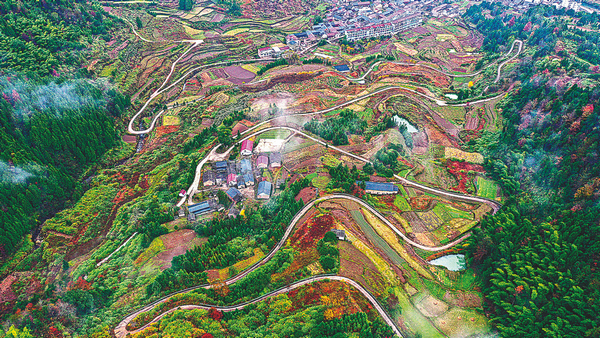

"We've seen an increase in homestay bookings this year over the pre-pandemic numbers of 2019 among local families and self-drive travelers from Beijing," says Si Xinran, an official with the homestay association of Yanqing district, northwestern Beijing.
The association has more than 120 homestay brands in the suburban district.
More than half of the available homestay rooms were booked throughout the summer vacation last year.
Themed tours were a favorite, including hiking and camping, and travel products featuring sporting elements saw bookings surge by more than 80 percent.
"The most popular among all activities was hiking in the mountains, with orders in 2021 rising by 150 percent over 2019," Liu says.
Camping appealed to many Chinese travelers, allowing urbanites to get away from the hustle and bustle without trekking too far.
Searches for camping getaways increased by a factor of 8 in 2021 compared with the previous year, with an average spend of around 550 yuan ($87), according to the insight report.
Those born in the 1980s and '90s were major customers for glamping, or high-end camping, experiences, each accounting for 40 percent of the market.
During the Labor Day holiday, glamping business owner Dai Zheng received bookings for more than 80 percent of his tents in Shanghai.
"The pandemic has changed the way people travel and brought us great opportunities for development," Dai says.
Shen Guohui from outdoor lifestyle social platform Camplus noticed a significant increase in photos of tents on his WeChat Moments last year. Shen believes the camping business is on the verge of explosive growth, as a larger number of people are relishing the outdoors experience.
According to the 2021 spring and summer season fashion report on China's Generation Z-those born after 1995-by Bilibili and Tmall, social distancing encouraged young people to, instead, get closer to nature.